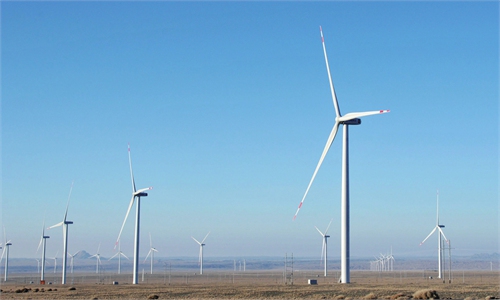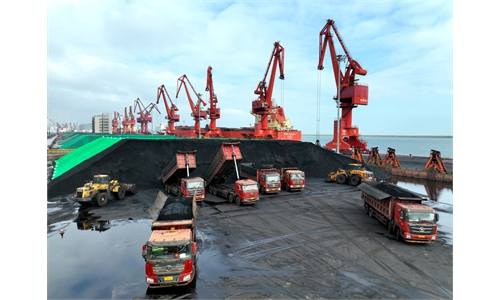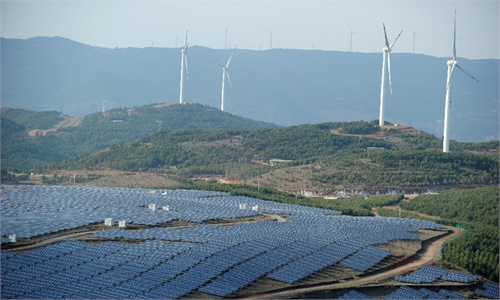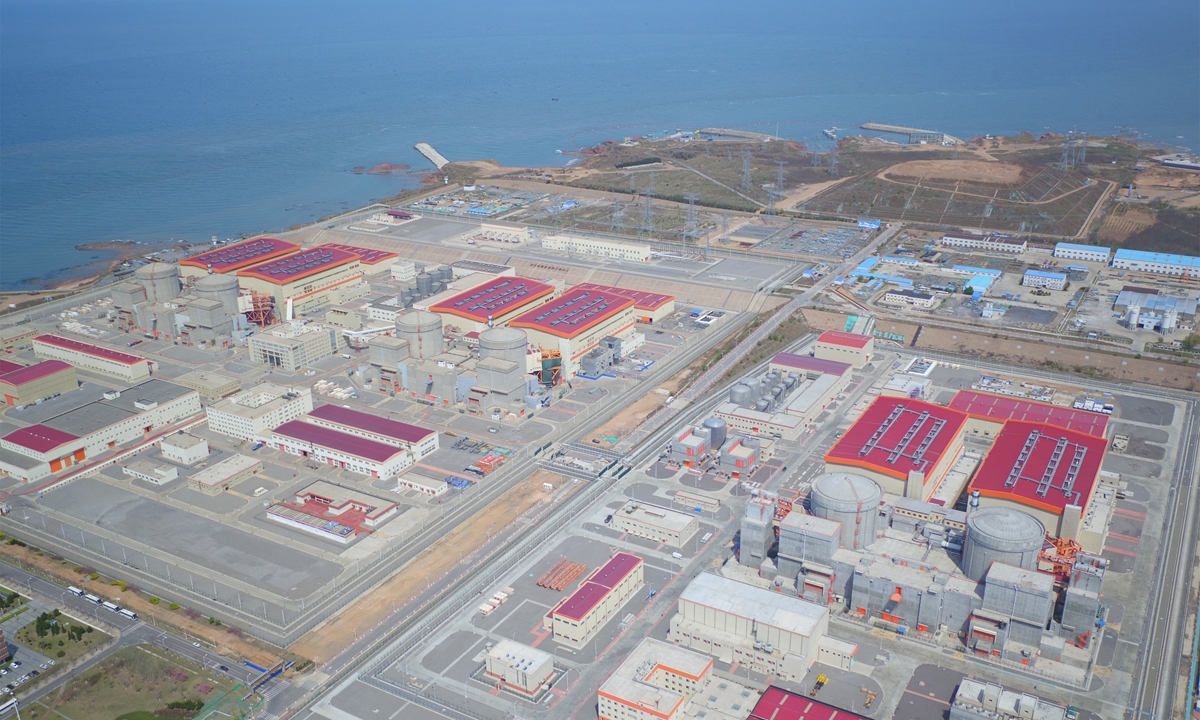
Arial photo taken on June 23, 2022 shows the Hongyanhe nuclear power station in Dalian, Northeast China's Liaoning Province. Photo: cnsphoto
The heating project of the Hongyanhe nuclear power plant in Northeast China's Liaoning Province was officially put into use on Tuesday. It's the first nuclear energy heating project in Northeast China, and it will provide clean and zero-carbon heating to local residents this winter.
The project is in Hongyanhe town in Liaoning's coastal city Dalian, with a planned heating area of 242,400 square meters and a maximum heating load of 12.77 megawatts. The project extracts non-radioactive steam from the nuclear power units as the heat source, and carries out a multi-stage heat exchange through stations and finally transmits the heat to households through the municipal heating pipe network.
In the past, local heating was mainly provided by decentralized small boilers mostly using coal, which has low thermal efficiency and wastes energy, putting pressure on local environmental protection during winter heating season. The annual heating season of Hongyanhe lasts for 152 days.This year, Hongyanhe dismantled 12 of the small decentralized boilers and moved to nuclear heating.
As a clean, zero-carbon and green form of heat, nuclear energy heating plays an important role in reducing environmental pollution, especially carbon dioxide emissions. The Hongyanhe project will reduce 5,726 tons of standard coal, 14,100 tons of carbon dioxide and 209 tons of soot per year, with significant environmental benefits.
In June, six units of the Hongyanhe nuclear power plant were fully operational, which can generate 48 billion kilowatts of electricity annually, accounting for about 20 percent of Liaoning's power consumption.
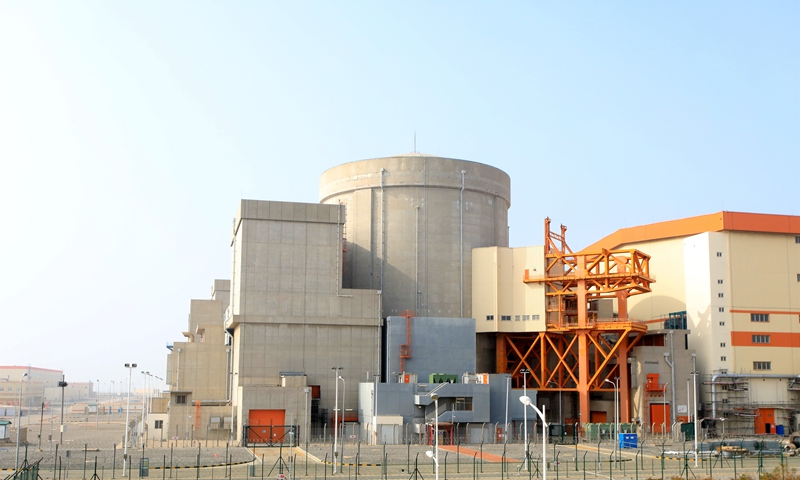
The heating project of the Hongyanhe nuclear power plant in Dalian, Northeast China's Liaoning Province Photo: VCG
Dalian is not the only city to use nuclear energy for winter heating. In November 2021, the second phase of the nuclear energy heating project in Haiyang, East China's Shandong Province entered service, making the city the first "zero carbon" residential heating city in China.
Experts noted that nuclear energy heating will effectively improve energy efficiency, becoming an important component of China's strategic environmental goals of peak carbon and carbon neutrality.
"While providing stable and safe clean power, the domestic nuclear power plants are exploring nuclear energy heating projects in surrounding communities, providing a new option for clean energy heating," Lin Boqiang, director of the China Center for Energy Economics Research at Xiamen University, told the Global Times on Tuesday.
Some coastal areas such as East China's Fujian Province and South China's Guangdong Province, where nuclear power is well-developed, will also phase in the use of nuclear power for heating, Lin added.
Global Times
